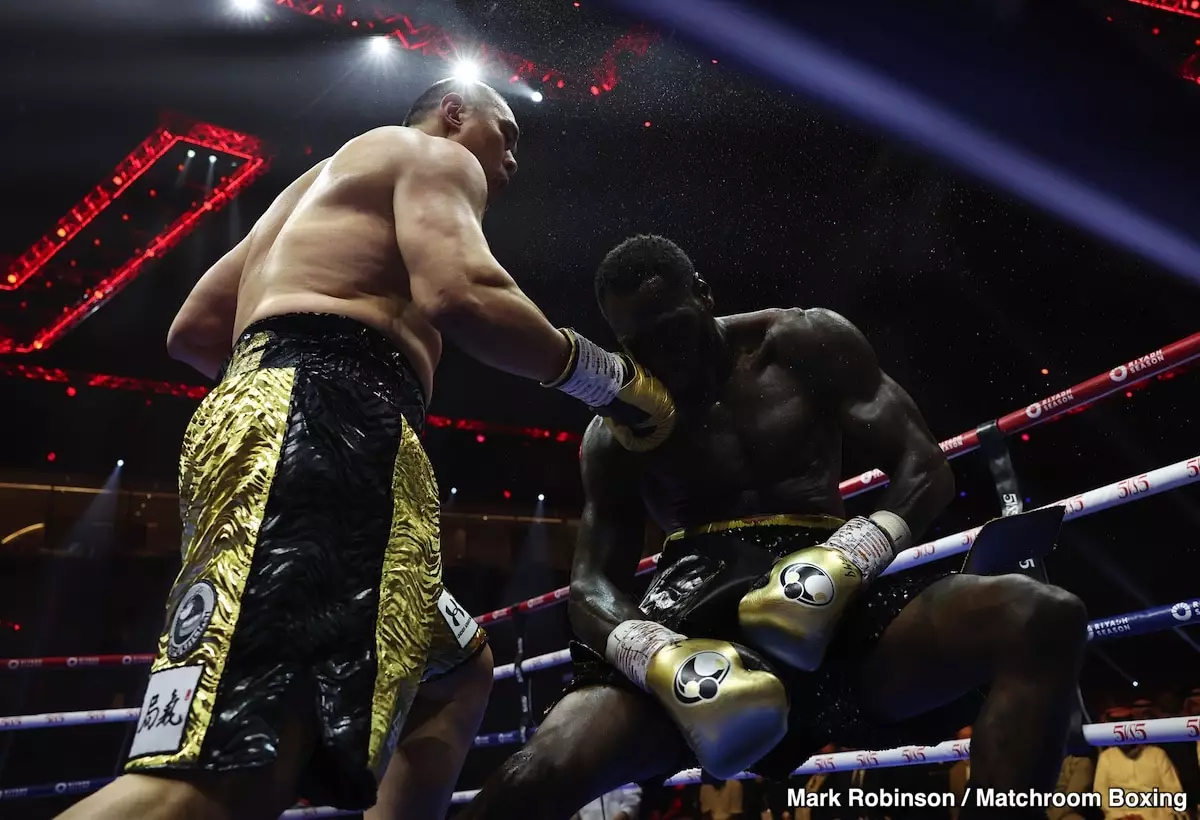The evolution of Deontay Wilder’s boxing career since joining forces with trainer Malik Scott in 2021 has been a hot topic of discussion within the boxing community. Former heavyweight contender Derek Chisora recently criticized this collaboration, claiming that Scott has diminished Wilder’s ferocity, likening the fighter’s transition to that of a lion morphing into a mere cat. This metaphor captures the essence of Wilder’s performance woes—his style and effectiveness seem to have dwindled, sparking concerns among fans and analysts alike.
Wilder’s fights under Scott—specifically his third bout with Tyson Fury and subsequent matches—have produced a lackluster record of 1-2. Notably, Wilder’s only victory came against Robert Helenius, a fighter who, while competent, lacks the pedigree of a top-tier heavyweight. The alarming reality is that Wilder has faced significant setbacks against recognized names such as Joseph Parker and Zhilei Zhang, who were both seen as opponents he was expected to defeat. Wilder’s inability to throw punches or assert his presence in these matches has raised numerous eyebrows, with many questioning what has happened to the fighter once known for his explosive power.
Derek Chisora’s outspoken criticism of Malik Scott reveals not only his concern for Wilder’s future but also the expectation from fans for fighters to maintain a competitive edge. Chisora reached out to Wilder directly, suggesting that he should part ways with Scott, who he believes has failed to instill the aggression required for success in the heavyweight division. In doing so, Chisora echoes the sentiments of many boxing enthusiasts who are puzzled over Wilder’s current fighting philosophy.
The deterioration in Wilder’s performance, particularly in his matches against Parker and Zhang, raises questions about Scott’s training methods. Chisora’s description of Wilder’s lack of aggression—particularly his reluctance to throw his powerful right hand—indicates a pivotal shift in Wilder’s approach to fighting. It appears that Scott’s techniques may have dulled the fighter’s instincts rather than sharpened them, which is detrimental at a point when Wilder should be aggressively seeking to reclaim his title glory.
Interestingly, while Wilder’s diminishing prowess is concerning, his financial stability serves as a double-edged sword. The luxury afforded to him by his wealth has perhaps cushioned the blow of disappointing performances, allowing him a level of comfort that some fighters do not enjoy. While many boxers might scramble to salvage their careers in the face of adversity, Wilder’s financial security may have inadvertently allowed him to remain complacent.
However, this complacency poses a critical question: Could Wilder’s wealth prevent him from making the tough, necessary decisions that could revitalize his career? Oftentimes, the urge to maintain a comfortable lifestyle can overshadow the fighter’s instinct for survival in the fiercely competitive environment of boxing. If Wilder perceives that he can afford to lose without dire consequences, the incentive to adapt and evolve in the sport diminishes significantly.
As Wilder approaches his 39th birthday, the clock is ticking on his boxing career. The window for making impactful changes is rapidly closing. If Wilder is indeed to revert to the “lion” he once was, drastic action is needed—most notably in regards to his training regime and coaching choices. Chisora’s assertion that Wilder needs a coach who can inspire him rather than stifle him resonates powerfully; a fighter of Wilder’s caliber should not be reduced to passivity when he once thrived on aggression and sheer will.
Moreover, should Wilder find himself facing a fighter employing similar tactics to those of Tyson Fury—who demonstrated remarkable effectiveness in maneuvers designed to undermine Wilder’s strengths—he would do well to heed the lessons exemplified by Oleksandr Usyk. Usyk’s ability to counter Fury’s mauling style by maintaining pressure should serve as a template for Wilder’s potential return to form.
Derek Chisora’s critique serves as a sobering reminder of the stakes involved for Deontay Wilder. While Malik Scott’s tenure as his coach has been marked by disillusionment and lost opportunity, the road ahead can still be navigated with thoughtful changes. Whether it’s a restructuring of his training team or a psychological shift in how Wilder approaches his craft, the next few months will be pivotal in determining whether he can reclaim the ferocity that once earned him admiration as one of boxing’s most formidable heavyweights. Ultimately, the choice for Wilder remains clear: evolve or risk being lost in the annals of boxing history.

